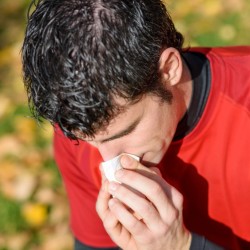Influenza Vaccine in Elderly: Nutritional Status-Dependent Immunogenicity
The immune response to influenza vaccine is attenuated in elderly persons, though they are at greatest risk for morbidity and mortality by influenza virus infection. Experimental studies demonstrate that co-administration of L-cystine and L-theanine enhanced antigen-specific production of immunoglobulin in aged mice infected with influenza virus. This study thus investigated the effect of L-cystine and L-theanine on antibody induction by influenza vaccines in elderly persons. By Koichi Miyagawa, Yoshimitsu Hayashi, Shigekazu Kurihara and Akiko Maeda, published in Geriatrics Gerentology Int’l., Japan Geriatrics Society, Vol. 8.




